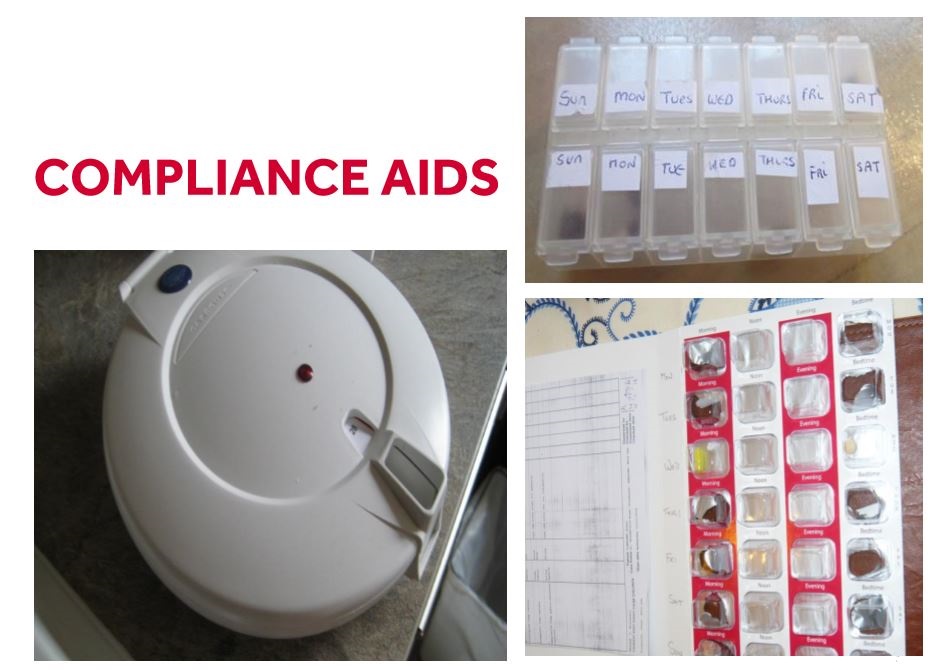Photo interviews used to understand experience of managing medications
People with dementia in Reading were able to share experience of medications by taking photographs, then discussing them with researchers.

The Purpose
The research project aimed to explore and understand in-depth how people with dementia viewed and manage their medicines. Photo elicitation interviews were used so that people with dementia could be directly involved through active participation in co-producing research about their experiences, without being directed by researchers or others about what to say.
Preparation
The team explored different types of cameras and decided to use a digital camera with a large screen.
People with dementia were recruited via an established research centre, the Berkshire Memory and Cognition Research Centre, a joint initiative between University of Reading and Berkshire Healthcare NHS Foundation Trust. Trained nurses conducted a cognitive test, the Montreal Cognitive Assessment (MoCA) to ensure eligibility of participants. Family carers of participants were also recruited.
What happened
The team loaned a digital camera to the person with dementia. A researcher explained how to use the camera and provided general guidance on the types of pictures to take. The aim was for the person with dementia to take part in collecting picture data.
The person with dementia took photos over a two week period of anything that reminded them of medicines.
A researcher then used the pictures as cues in an interview with the person with dementia and their carer. The researcher asked open questions such as
- 'What can you tell me about this picture?'
- ‘Can you pick a few pictures which are important to you?’
- ‘Can you tell me what this picture means to you?'
The Results
People with dementia, and some family carers, each took between 3 and 20 photographs that reminded them of medicines. Altogether, they took a total of 129 pictures.
- Most photographs were taken independently by the person with dementia – they planned and took pictures on their own without prompting.
- Some people were prompted by their family carers and in a few cases, the family carer undertook the task without input from the person with dementia.
- Click this link to see the photographs people took for this project.
Most people with dementia were able to participate meaningfully in the interview, using the pictures they had taken as cues to discuss their experiences. In a few interviews, the family carer played a big role in providing views instead of the person with dementia.
What changed for people with dementia
People with dementia actively co-produced research data. They took part in collecting research data about their own experiences.
People with dementia’s voices were heard. They expressed their own views and shared their personal experiences in an articulate and meaningful way, eliminating doubt and questions about the validity and credibility of their accounts of their experience.
Learning points
It is feasible, important and rewarding to involve people with dementia in co-producing research.
Although the involvement of family carers is important, researchers should take extra care to emphasise and encourage, the importance of the person with dementia independently taking part in the study.
Be sensitive and flexible in managing the research process using photo elicitation interviews. Respect the wishes of both the person and their carer about how they wish to participate in the study, even if this means changing some parts of the research method, for example interviewing the person with dementia together with their carer rather than in a 1-2-1 interview.
Key contacts to find out more
Dr Rosemary Lim (Lecturer in Pharmacy Practice, Reading School of Pharmacy, University of Reading) Email: [email protected]
Funding source for this project: The research study was funded by the Wellcome Trust, Grant Award Number: 108320/Z/15/Z.
Useful links



